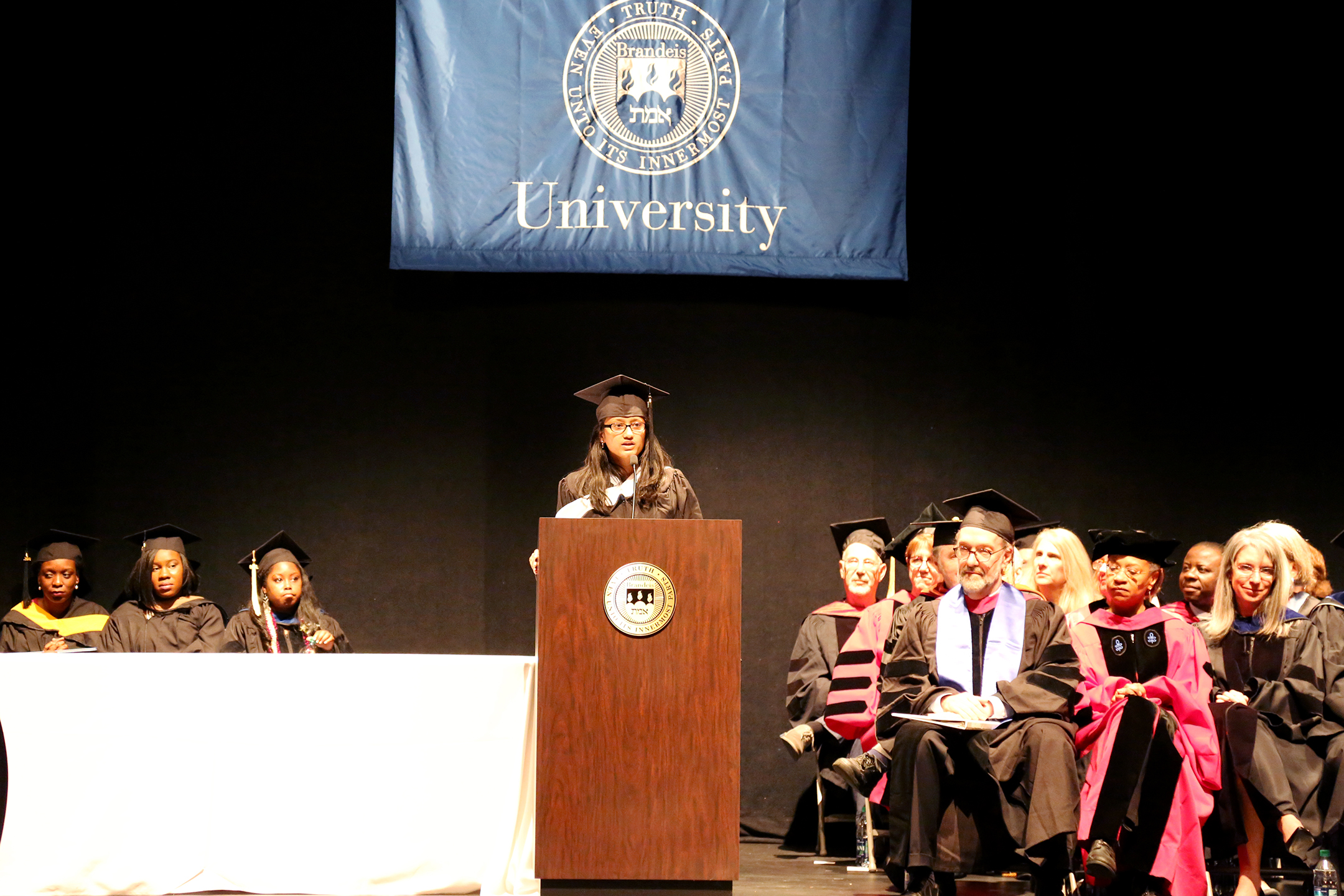
Thank you everyone for being here today: Students for their hard work; administrators, staff and faculty; and most importantly, families, for their support and for standing by us every step of the way.
I want to take a moment to thank my parents who are here today. My parents are Indian immigrants who came to this country in pursuit of the American dream. My father came to follow his passion for science and academia, attaining an Ivy League education and his PhD in Biophysics. My mother was an athlete who attained her MBA and started working to support her family at the age of 18, despite social bias in her small town in Bihar. My parents faced many hurdles in securing their lives, their careers and our home—but always taught me the value of knowledge, resilience, compassion and courage.
The compassion they taught me has now grown into a sense of duty and service to my country, community and all those around me. The same sense of service brought me to Heller and the MA in Conflict Resolution and Coexistence program. I didn’t realize by coming here I had stepped into the deep web of peacebuilding with a profound interest in the what some deem the opposite, defense and national security. Regardless of this obvious collision of worlds, I would not trade my Heller experience for anything.
I believe it is an interest in helping the world that brings us all here today to a social policy school, despite uncertainties on how that may happen. Living in the current political climate, where racism and the divisions that separate us as national and global citizens are running deeper by the day, it is often difficult to imagine peace. A time when partisan politics is more important than the values that founded this nation makes coexistence just a fading thought. All this makes facilitating change seem like the most daunting task.
But I have learned that if you really want to build a better world, you have start by internalizing the qualities you want to see and making changes where changes are possible, even if they seem insignificant today. To quote Mahatma Gandhi, “Be change you wish you see in the world.”
As future leaders, it is imperative also to recognize the value of the big picture and not limit our imaginations, approaches or perspectives. In the pursuit of change and impact, we should not undermine how change always starts with one person, one idea, or one commitment, one day at a time.
We also cannot ignore the value of the many tools in our arsenal in facilitating change. I believe peacebuilders have a heavier burden to think creatively and to not take anything at face value. So while Professor Alain started our journey two years ago with teaching us about the “three P’s” of negotiation: people, problems and process, I’ll focus now on the “three R’s” of facilitating change. Peace, despite all that’s said, is still matter of imagination to most and to bring that to reality we must not let our imaginations stop us from reframing, redefining, and reinventing the systems that exist today.
The last thing I want to leave with you with is the power of community. While it may seem like a lot of work is needed in this world today, we are no longer alone in that journey. We carry with us the strength of Heller, the COEX Program and the many peers that stand or sit with us today.
Cherish that. Know that the Heller hustle has given us the power to think critically and provide inclusive, diverse, and considerate responses to many problems we face. And let’s never forget to treat each other with kindness and compassion, regardless of our many differences.
Congratulations class of 2018! Let’s go out there and be that change!
